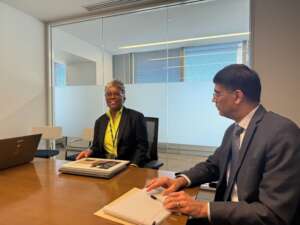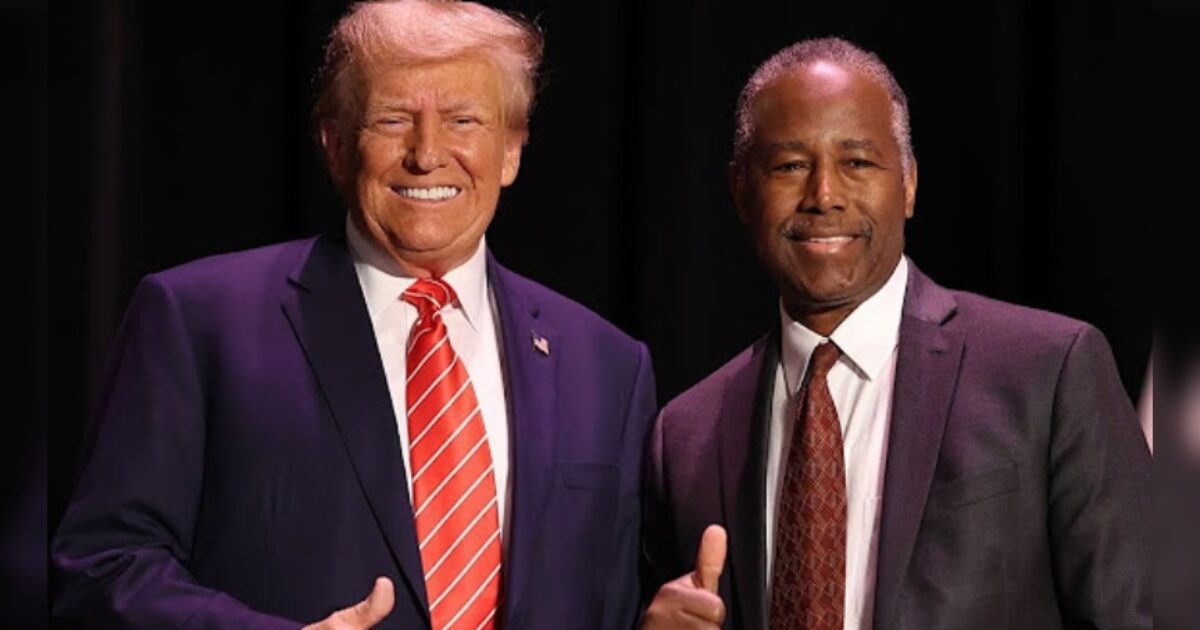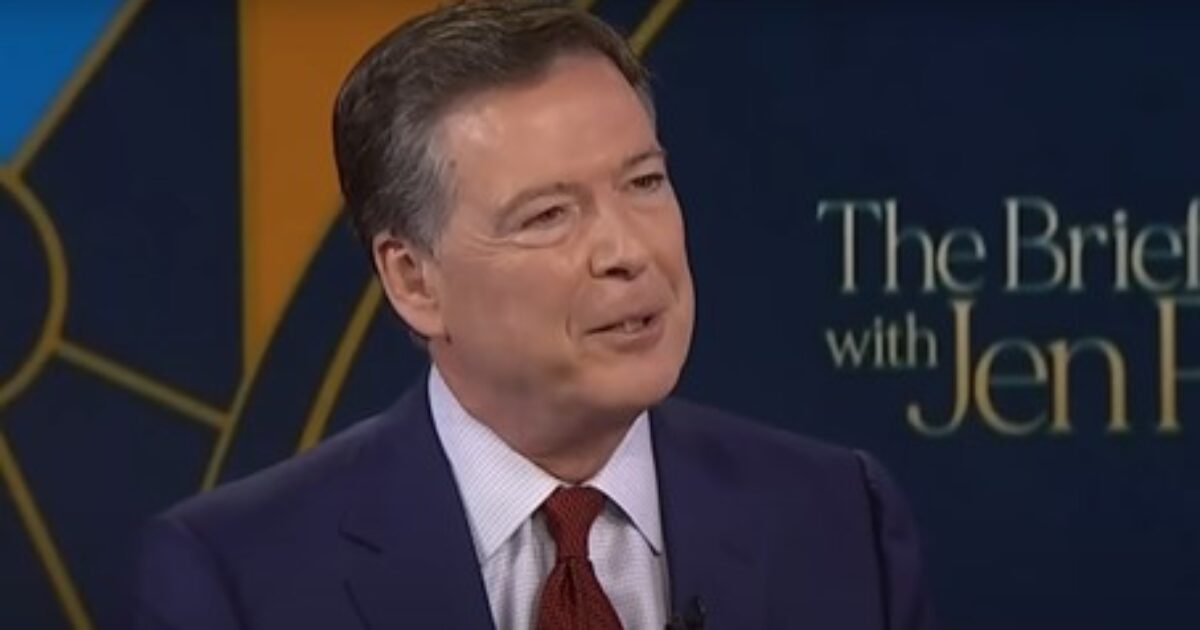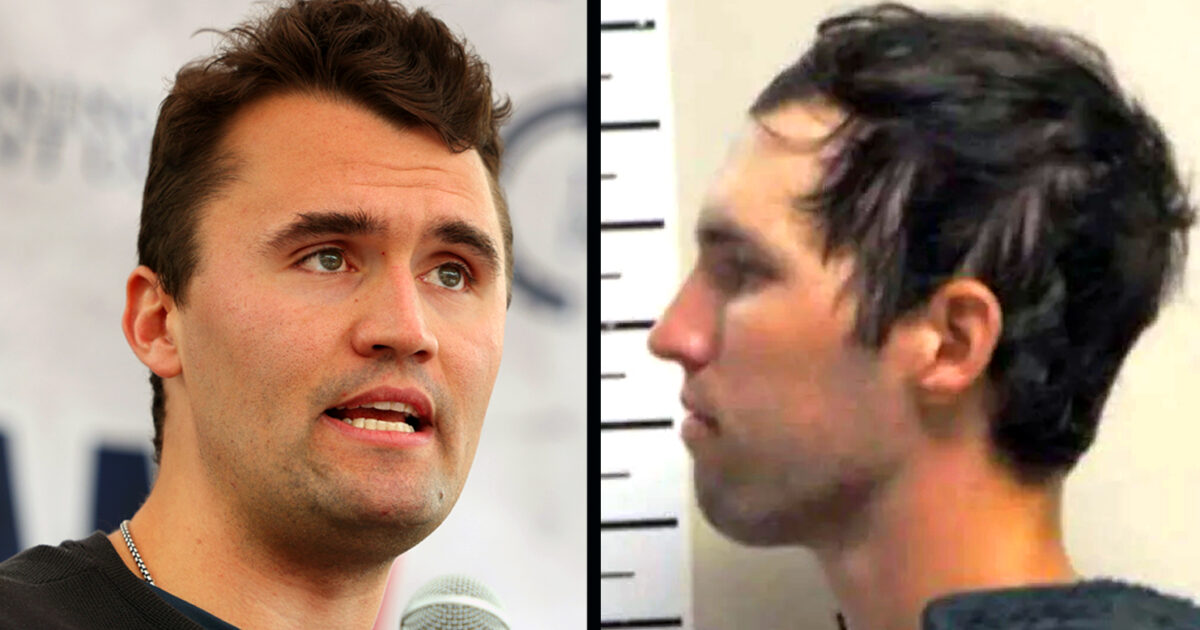Politics
From COBOL to cloud, Burton reflects on four decades in government

When Adriane Burton joined the federal government nearly 40 years ago, the IRS trained her to work on Unisys mainframes using COBOL.
Burton, who retired in April after 37 years of federal service, had a front-row seat for all the major technology changes the government went through since the late 1980s.
Burton, who spent her last 11 years as the chief information officer at the Health Resources and Services Administration in the Department of Health and Human Services, said the evolution of networked systems and data centers may have been the most significant advancement during her career.
Adriane Burton (left), the former CIO at the Health Resources and Services Administration in HHS, retired earlier this year after 37 years of federal service.
“That’s the foundation for a lot, and especially in terms of being able to communicate. I remember when I started working at IRS, they used to send out tape to service centers. That was the file transfer, putting a tape on a plane and bringing it out. So without that network infrastructure, you could never do some of the things that we do now and that we’re just so used to having,” Burton said during an “exit” interview on Ask the CIO. “When I first started my federal career, of course there was no internet. So you can imagine it’s life before the internet and after. So the internet became mainstream, and it really revolutionized the ability to communicate outside of your specific silo and your mainframe environment. That just really opened up the opportunity to collaborate with anyone throughout the world, which was pretty amazing during that time. Then I remember we used to send Buckslips around, and now email transformed everything as did virtual private networks, Wi-Fi and smartphones. I remember when I went to the National Institutes of Health and they had BlackBerrys, and I thought, ‘wow, this is so cool. I really want to work here, look at all this new cutting edge technology that they have.’ Then came cloud computing, being another game changer, where you’re not focused on building data centers, but really procuring those services and using them and software-as-a-service and platform-as-a-service, and moving from custom code to low code, no code environments.”
Burton said all of these transformative technologies came to the forefront during the pandemic for HRSA. She said one of her biggest accomplishments during her career is how the agency responded during the crisis, in part because of the technology modernization she helped usher in.
“When we got the call stating that the federal government needs to work remotely, we were really able to pivot quickly with that, especially in terms of the infrastructure. So we were already there. Folks already had laptops. We had our VPNs that were sized at the appropriate capacity. So we were able to transition without skipping a beat,” Burton said. “I don’t think very many things escalated to that level in terms of the emergency, during COVID in my 37 years of federal service. We were able to expedite grant funds to healthcare providers, and then we got that $175 billion for the provider relief fund that we needed to disperse, and we didn’t have a system to disperse that. Within two weeks, we were able to push out $40 billion to healthcare providers.”
Customers, mission drives IT upgrades
Burton said thanks to the infrastructure modernization HRSA has been pursuing, a lot of the capabilities they needed were in place or could be put in place with the help of a contractor fairly quickly.
Burton also pointed to how HRSA improved its management of data. It created a data lake a few years before the pandemic hit and the agency seamless was able to share data across different programs and with private sector partners.
“We always have been able to embrace security and different things and still not let that prevent us from actually doing the work that we needed to do within our organization,” she said. “One of the great things that I loved about HRSA was it was a right size. It wasn’t too small and too big, so that we could actually implement new technologies fairly quickly. I’m really happy with the progress that we made over the 11 years, and I’m really proud of my team.”
Coming out of the pandemic, Burton said HRSA also adopted business intelligence capabilities to take further advantage of its data.
All of these modernization changes, Burton said, were driven by the needs of the mission and her customers.
“I think that I’ve always, even if I supported mandatory services, treated folks as customers that they didn’t have to use our services. I think that that really helped to improve the services over time and to really listen to the customers to find out what do they really need, what will really help them?” she said. “It may be process improvement. It could be some of the technology or it could be educating them on the technology or it could be supporting their meetings for them. The key is trying to figure out how can we partner and how can I make their lives better by with the use of technology?”
Burton said understanding that aspect of her job was among her most important lessons learned over her career. While a CIO may come in as a technologist, she said being a top level technology executive is more about strategy and meeting mission goals.
“Technology is always going to change, but the overall goal for delivering healthcare doesn’t change. So then for us, because we were limited in funding, we really have to be practical about how to fund things, to be creative and that means that sometimes you’re not going to get this big budget for this whole thing that you want to do, and really to think about it in different segments so that you can implement things like a foundation and build on it over time,” she said. “That’s what we did with our data lake. We implemented for one program, and then we were able to expand it for other programs along the way. I think that’s important. It’s also really important to invest in your people. I spent a lot of time mentoring folks, developing them, allowing them to go on different types of details so that they grow because if your people are happy, then usually, they’re able to produce more.”
As for her future, Burton said she plans to take some time off for a vacation and then enjoy the summer. She said she will continue to work with two non-profit organizations and reassess what she wants to do in the fall.
The post From COBOL to cloud, Burton reflects on four decades in government first appeared on Federal News Network.
Politics
President Trump Taps Dr. Ben Carson for New Role — A HUGE Win for America First Agenda

Dr. Ben Carson is the newest member of the Trump administration.
On Wednesday, former Secretary of the Department of Housing and Urban Development, Ben Carson, was sworn in as the national adviser for nutrition, health, and housing at the U.S. Department of Agriculture.
Agriculture Secretary Brooke Rollins shared that Carson’s role will be to oversee Trump’s new Big Beautiful Bill law, which aims to ensure Americans’ quality of life, from nutrition to stable housing.
After being sworn in, Carson shared, “Today, too many Americans are suffering from the effects of poor nutrition. Through common-sense policymaking, we have an opportunity to give our most vulnerable families the tools they need to flourish.”
WATCH:
BREAKING Dr. Ben Carson has been sworn in as the National Nutrition Advisor to Make America Healthy Again
THIS IS A HUGE WIN pic.twitter.com/Dr5AsSDkRM
— MAGA Voice (@MAGAVoice) September 24, 2025
Per USDA:
Today, U.S. Secretary of Agriculture Brooke L. Rollins announced that Dr. Benjamin S. Carson, Sr., M.D., was sworn in as the National Advisor for Nutrition, Health, and Housing at the U.S. Department of Agriculture (USDA).
“There is no one more qualified than Dr. Carson to advise on policies that improve Americans’ everyday quality of life, from nutrition to healthcare quality to ensuring families have access to safe and stable housing,” said Secretary Rollins.
“With six in ten Americans living with at least one chronic disease, and rural communities facing unique challenges with respect to adequate housing, Dr. Carson’s insight and experience is critical. Dr. Carson will be crucial to implementing the rural health investment provisions of the One Big Beautiful Bill and advise on America First polices related to nutrition, health, and housing.
“As the U.S. Secretary of Housing and Urban Development in the first Trump Administration, Dr. Carson worked to expand opportunity and strengthen communities, and we are honored to welcome him to the second Trump Administration to help lead our efforts here at USDA to Make America Healthy Again and ensure rural America continues to prosper.”
“Today, too many Americans are suffering from the effects of poor nutrition. Through common-sense policymaking, we have an opportunity to give our most vulnerable families the tools they need to flourish,” said Dr. Ben Carson. “I am honored to work with Secretary Rollins on these important initiatives to help fulfill President Trump’s vision for a healthier, stronger America.”
On Sunday, Dr. Carson was one of the many speakers at the memorial service of the late TPUSA founder Charlie Kirk.
During the memorial service, Carson highlighted that Kirk was shot at 12:24 p.m. and then continued to share the Bible verse John 12:24, which reads, “Verily, verily, I say unto you, Except a corn of wheat fall into the ground and die, it abideth alone: but if it die, it bringeth forth much fruit.”
WATCH:
Ben Carson reads John 12:24 at the Charlie Kirk’s funeral. Charlie was shot at 12:24.
It reads: “Very truly I tell you, unless a kernel of wheat falls to the ground and dies, it remains only a single seed. But if it dies, it produces many seeds”
God is moving and speaking. pic.twitter.com/0ZbVTAwwYl
— Danny Botta (@danny_botta) September 21, 2025
The post President Trump Taps Dr. Ben Carson for New Role — A HUGE Win for America First Agenda appeared first on The Gateway Pundit.
Politics
LEAKED MEMO: Deep State Prosecutors in the Eastern District of Virginia Claim There Isn’t Enough Evidence to Convict Comey Amid Reports of Imminent Indictment


On Wednesday evening, disgruntled officials in the Eastern District of Virginia leaked contents of a memo explaining why charges should not be brought against James Comey.
As reported earlier, former FBI Director James Comey is expected to be indicted in the Eastern District of Virginia in the next few days.
Comey will reportedly be charged for lying to Congress in a 2020 testimony about whether he authorized leaks to the media.
Officials in the Eastern District of Virginia are still fighting to stop Comey from being charged after Trump fired US Attorney Erik Siebert.
President Trump last week fired Erik Siebert as the US Attorney for the Eastern District of Virginia because he refused to bring charges against Letitia James, Comey, Schiff and others.
On Saturday evening, President Trump announced that he had appointed Lindsey Halligan – his personal attorney who defended him against the Mar-a-Lago raid – as US Attorney for the Eastern District of Virginia.
Now, with just days to go before the statute of limitations runs out to charge Comey for lying during a September 30, 2020 testimony, Lindsey Halligan is reportedly gearing up to indict Comey.
Prosecutors reportedly gave newly sworn-in Halligan a memo defending James Comey and explaining why charges should not brought against the fired FBI Director.
Per MSNBC’s Ken Dilanian:
Two sources familiar with the matter tell me prosecutors in the EDVA US attorney‘s office presented newly sworn US attorney Lindsey Halligan with a memo explaining why charges should not be brought against James Comey, because there isn’t enough evidence to establish probable cause a crime was committed, let alone enough to convince a jury to convict him.
Justice Department guidelines say a case should not be brought unless prosecutors believe it’s more likely than not that they can win a conviction beyond a reasonable doubt.
Two sources familiar with the matter tell me prosecutors in the EDVA US attorney‘s office presented newly sworn US attorney Lindsey Halligan with a memo explaining why charges should not be brought against James Comey, because there isn’t enough evidence to establish probable…
— Ken Dilanian (@DilanianMSNBC) September 24, 2025
The post LEAKED MEMO: Deep State Prosecutors in the Eastern District of Virginia Claim There Isn’t Enough Evidence to Convict Comey Amid Reports of Imminent Indictment appeared first on The Gateway Pundit.
Politics
Nearly 8 in 10 Voters Say the United States is in Political Crisis After the Assassination of Charlie Kirk

Nearly eight in ten voters believe that the United States is in a political crisis in the wake of the assassination of conservative icon Charlie Kirk.
According to a Quinnipiac University national poll of registered voters released on Wednesday, a massive 93 percent of Democrats, 84 percent of independents, and 60 percent of Republicans said the nation is in a political crisis.
“The Kirk assassination lays bare raw, bipartisan concerns about where the country is headed,” Quinnipiac University Polling Analyst Tim Malloy said of the poll results.
Quinnipiac reports:
Seventy-one percent of voters think politically motivated violence in the United States today is a very serious problem, 22 percent think it is a somewhat serious problem, 3 percent think it is a not so serious problem, and 1 percent think it is not a problem at all.
This is a jump from Quinnipiac University’s June 26 poll when 54 percent thought politically motivated violence in the United States today was a very serious problem, 37 percent thought it was a somewhat serious problem, 6 percent thought it was a not so serious problem, and 2 percent thought it was not a problem at all.
Nearly 6 in 10 voters (58 percent) think it will not be possible to lower the temperature on political rhetoric and speech in the United States, while 34 percent think it will be possible.
Over half, 54 percent, of voters believe the US will see increased political violence over the next few years. Another 27 percent said they think it will stay “about the same,” while just 14 percent believe it will ease.
A 53 percent majority also said they are “pessimistic about freedom of speech being protected in the United States.”
Surprisingly, a 53 percent majority also believes the current system of democracy is not working.
“From a perceived assault on freedom of speech to the fragility of the democracy, a shudder of concern and pessimism rattles a broad swath of the electorate. Nearly 80 percent of registered voters feel they are witnessing a political crisis, seven in ten say political violence is a very serious problem, and a majority say this discord won’t go away anytime soon,” Malloy added.
The vast majority, 82 percent, said the way that people discuss politics is contributing to the violence.
“When asked if political discourse is contributing to violence, a rare meeting of the minds…Republicans, Democrats, and independents in equal numbers say yes, it is,” Malloy said.
The survey was conducted from September 18 to 21 among 1,276 registered voters with a margin of error of +/- 3.3 percentage points.
The post Nearly 8 in 10 Voters Say the United States is in Political Crisis After the Assassination of Charlie Kirk appeared first on The Gateway Pundit.
-

 Entertainment6 months ago
Entertainment6 months agoNew Kid and Family Movies in 2025: Calendar of Release Dates (Updating)
-

 Entertainment3 months ago
Entertainment3 months agoBrooklyn Mirage Has Been Quietly Co-Managed by Hedge Fund Manager Axar Capital Amid Reopening Drama
-
Tech6 months ago
The best sexting apps in 2025
-

 Entertainment5 months ago
Entertainment5 months agoKid and Family TV Shows in 2025: New Series & Season Premiere Dates (Updating)
-

 Tech7 months ago
Tech7 months agoEvery potential TikTok buyer we know about
-
Tech7 months ago
iOS 18.4 developer beta released — heres what you can expect
-

 Tech7 months ago
Tech7 months agoAre You an RSSMasher?
-

 Politics7 months ago
Politics7 months agoDOGE-ing toward the best Department of Defense ever





